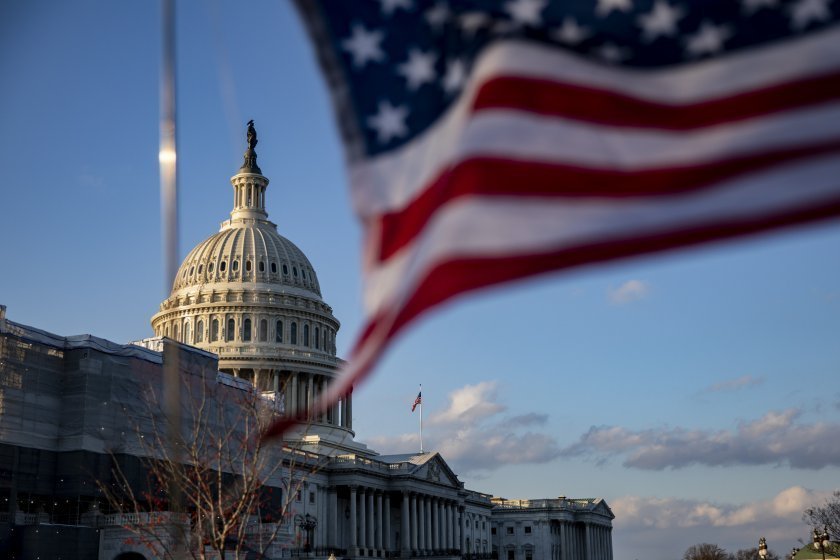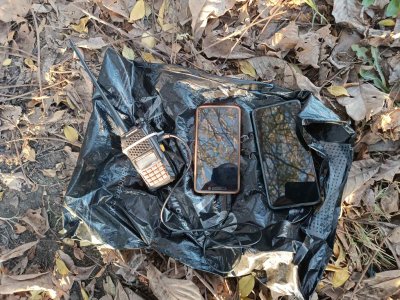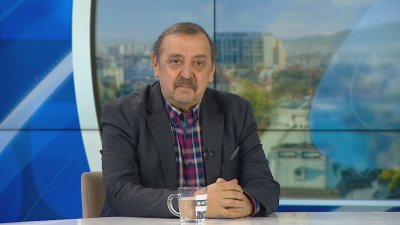More political reactions and comments came on June 3 following the US sanctions on Bulgarian individuals and 64 companies under the Magnitsky Act, including former MP from the Movement for Rights and Freedoms (MRF) party, Delyan Peevski and gambling businessman Vassil Bozhkov.
The Movement for Rights and Freedoms believes that corruption weakens the rule of law, damages the economy and economic growth, undermines democratic institutions, deepens conflicts and deprives innocent citizens of basic human rights. The MRF supports all those who seek to eradicate corruption, demanding that corrupt individuals who undermine Bulgaria's economic functions and democratic institutions be brought to justice, the party said.
In the OFAC’s June 2 announcement, Delyan Slavchev Peevski ("Peevski") is said to be an oligarch who was previously a Bulgarian MP and media mogul and regularly participated in corruption, using influence peddling and bribes to protect himself from public scrutiny and exert control over key institutions and sectors in Bulgarian society. In September 2019, Peevski actively worked to negatively influence the Bulgarian political process in the October 27, 2019 municipal elections. Peevski negotiated with politicians to provide them with political support and positive media coverage in return for receiving protection from criminal investigations.
“Corruption within the meaning of this law occurs when, as a result of holding a senior public office, a person abuses power, violates or fails to perform official duties in order to directly or indirectly derive material or intangible benefits for himself or others." (Art. 3, para. 1 of the anti-corruption Act)
We remind you that Mr. Delyan Peevski has not held a high public position since 2009 until now, except that he was an MP from the MRF," the party's position reads. The MRF said that it is expecting facts and evidence that motivated the decision by the US Treasury Department’s Office of Foreign Assets Control (OFAC) to impose sanctions on former MRF MP Delyan Peevski.
Until then, the MRF remains in solidarity with Peevski’s personal position, the party said.
In his reaction to OFAC’s announcement, Peevski described it as “unacceptable, biased and inconsistent with the spirit and meaning of this law”.
“This is because I have not done anything to violate internationally recognised human rights, I am not a civil servant and I have not been involved in corrupt practices, and the announced reasons for the sanctions do not contain a single true fact,” Peevski’s position said.
Vassil Bozhkov, who is also subject to the US sanctions, thanked the US for paying attention to his signal.
“It was the first official evidence of racketeering and extortion on a particularly large scale by Boyko Borissov (former PM) and Vladislav Goranov (former finance minister),” Bozhkov said. Of all those affected by the junta, I am the first to send an official signal to Bulgarian and all international judicial institutions," he wrote on Facebook.
In "The Day Begins" on BNT this morning, Bulgaria’s former ambassador to the United States, Elena Poptodorova, commented on the sanctions as well as the words of the American ambassador Herro Mustafa that this is just the beginning of active action by the United States against corruption in Bulgaria.
Banker Tsvetan Vassilev in Serbia should be interviewed. He holds information and a key to many of the events that have taken place in the area that is subject to the sanctions, and we can only be surprised why this questioning is being delayed, she said.
Journalist Simeon Gasparov commented from Chicago that this law is very heavy, it acts like a domino law. It covers not only the people around the Peevski, Bozhkov, Zhelyazkov circle, but also their relatives, their business partners, but it will also severely affect the banks that hold their money.
GERB leader Boyko Borissov told a news conference on June 3 that his relations with Peevski were “purely political” and always had been connected to regions where there were mayors from the MRF.
“We have no companies, no common business, or anything,” Borissov said.
“We have never received a penny from Bozhkov – never,” he said.
On Facebook, the cable television presenter and leader of “There is Such a People”, Slavi Trifonov, said that everything that had been said in the US Treasury Department statement had been known long before by Bulgarian civil society, which had expressed it in the squares and streets.
“Eight years ago, thousands of citizens in dozens of cities expressed their attitude and position towards Delyan Peevski. And they firmly defended their position for over 400 days. Just before the American report, namely last year, the civil society in Bulgaria expressed in an unequivocal way its intolerance of brutal corruption at all levels of government,” Trifonov said.
The US sanctions were nothing but support for what has already been expressed by the Bulgarian civil society, he said.
“They are an outstretched friendly hand from our partner. Nevertheless, I am convinced that the agenda in Bulgaria is not written by the reports of our loyal partners, but by the wishes and will of the Bulgarian citizens. And so it will be in the future. It is not the US sanctions that will change our country, but the awakened civil society,” Trifonov said.
The leader of the centre-left Bulgarian Socialist Party, Kornelia Ninova, said that the sanctions imposed on individuals and companies were a serious contribution to the fight against corruption and to the rule of law in Bulgaria.
According to her, this raises three questions.
First, why someone else, from the outside, needs to tell us what to do. Apparently, the law enforcement agencies in the country have not done their job over the years, and that is why we get such sanctions from outside.
The second question is to Prosecutor General, Mr. Ivan Geshev. On the basis of these data to launch large-scale investigations into these cases of corruption and this time to reach to the end.
And third - perhaps most importantly - this signal is not just an anti-corruption one. It is also political, because it is clear to all of us that such corruption schemes cannot happen without political protection.
Rreal investigation must show those political forces and factors that have created and maintained this model over the years and reveal the political mentors of this model," Ninova said.
The first political reactions came from the chairman of "Democratic Bulgaria" Hristo Ivanov on June 2. The US government is making a gesture towards the intolerance of the Bulgarian society towards political corruption. It is a consequence of the actions of the Bulgarian citizens, and it is not some initiative or intervention, said Hristo Ivanov.
As a green light and support for a more determined fight against corruption in Bulgaria. This is how I accept the decision of the Office of Foreign Assets Control (OFAC) of the US Treasury Department to impose sanctions on three Bulgarians (Peevski, Bozhkov and Ilko Zhelyazkov - Deputy Chairman of the National Bureau for Control of Special Intelligence-Gathering Devices), the chairman of the coalition "Rise Up! Thugs Out!", Maya Manolova said.










 Чуй новините
Чуй новините Подкаст
Подкаст























